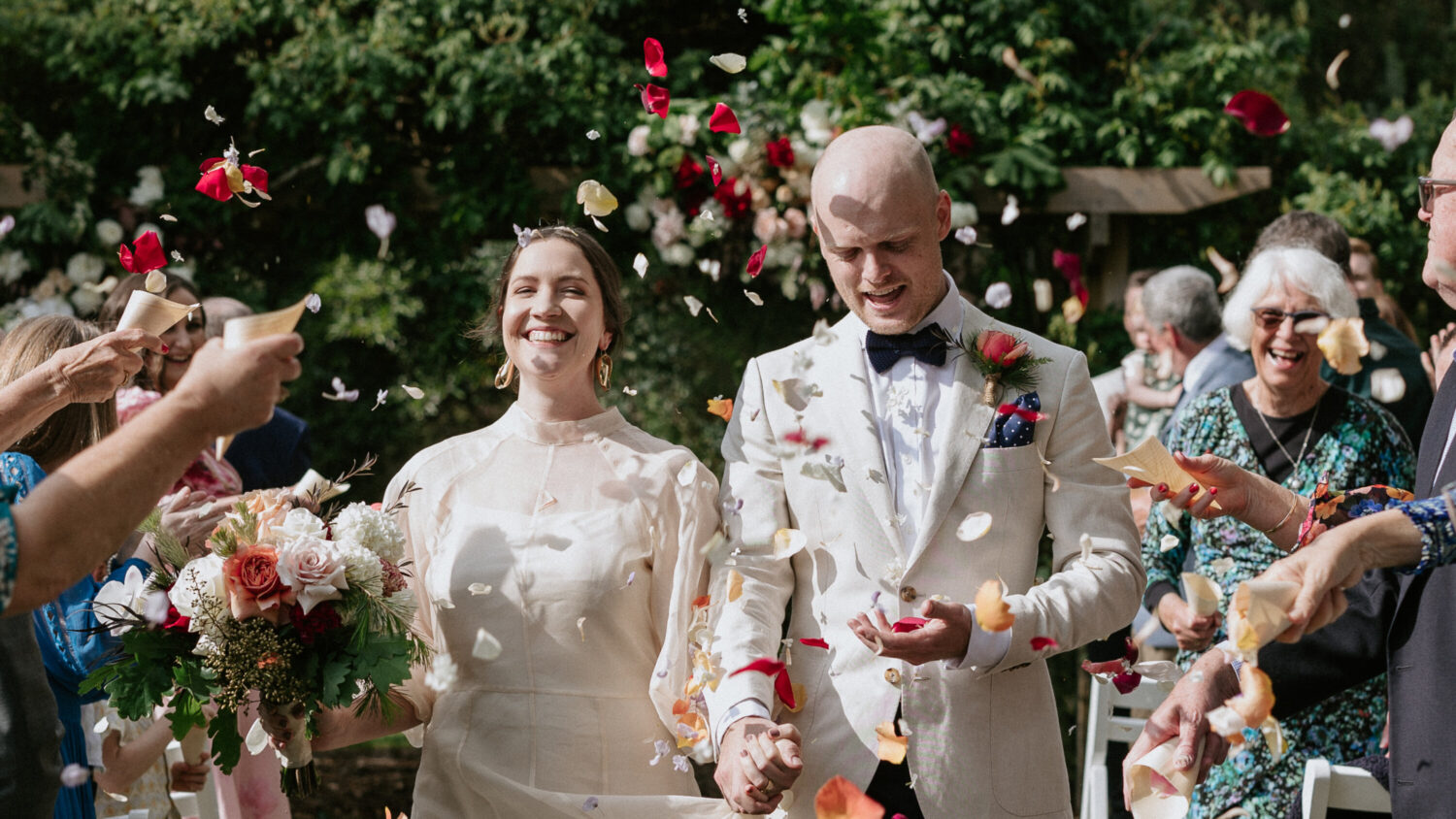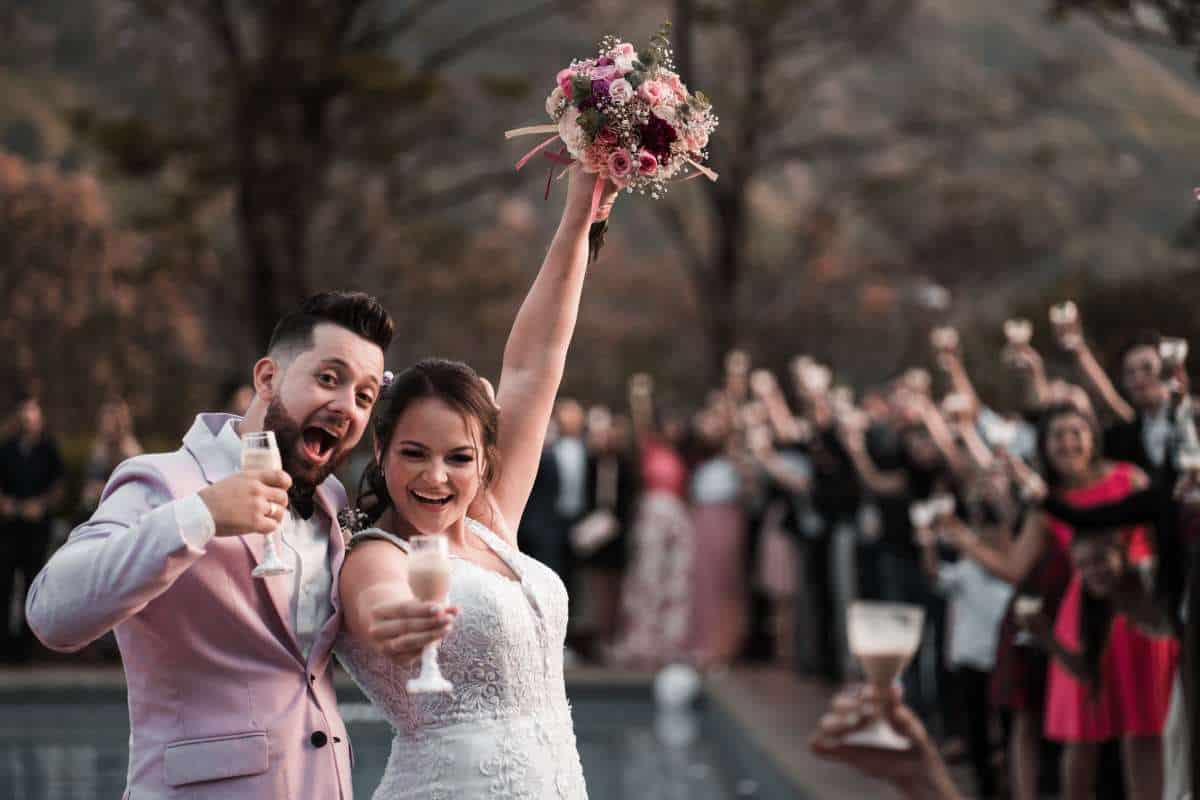
Wedding planning can be an expensive and time-consuming process. But did you know that it can also have a great impact on the environment? As more couples choose to hold their weddings in a sustainable way, sustainable practices are becoming increasingly important for wedding planners.
This article will explore what you need to know about sustainable wedding planning and how it can help shape your big day. From selecting eco-friendly venues, using biodegradable decorations, and choosing vendors who focus on sustainability, there are countless ways to make sure your special day has minimal environmental impact while still being beautiful and memorable.
So if you’re looking for an environmentally friendly approach to your wedding planning journey – read on!
1. Green Wedding Venues
When it comes to creating a sustainable wedding, one of the most important factors to consider is where you host your event. Green wedding venues are becoming increasingly popular as couples look for ways to reduce their environmental impact and make their weddings more eco-friendly.
Whether you choose an outdoor venue or an indoor location, there are many options available that will help create a beautiful green celebration without compromising on style. Outdoor wedding venues offer breathtaking views and plenty of fresh air while utilizing natural resources such as sunlight and wind power rather than relying on electricity.
Additionally, many outdoor locations have access to local food sources which can be used in catering – reducing transportation costs associated with having food shipped from further away. For those looking for something indoors, there are plenty of green spaces available too!
Many businesses specialize in hosting events that prioritize sustainability initiatives such as using organic materials like bamboo, purchasing locally produced items, incorporating sustainable energy sources like solar panels or energy-efficient lighting systems into their decor and design plans, recycling all waste generated during the wedding preparations/days themselves, etc.
Whatever option you decide upon for your big day make sure its ecologically responsible so that your special occasion leaves behind a minimal carbon footprint!
2. Eco-Friendly Decorations

When planning a wedding, eco-friendly decorations are becoming increasingly popular. Couples can opt for decor that is not only eye-catching and elegant but also sustainable. Using recycled materials or opting for plants as centerpieces instead of flowers are just some of the ways couples can incorporate eco-friendly elements into their special day.
Decorating with vintage pieces, upcycling items you already own, and choosing locally sourced products are other great ideas to reduce waste without sacrificing style.
Additionally, couples should consider using LED lights to light up the venue rather than more energy-consuming sources such as candles or paraffin lamps. Not only will this contribute to an environmentally friendly wedding but it will help keep costs down in the long run too!
3. Sustainable Catering Options
When it comes to catering for your wedding, sustainability should be top of mind. Fortunately, there are several options that can help you achieve an eco-friendly wedding celebration while still providing delicious dishes and drinks.
Start by considering local farms and growers who can provide seasonal produce; this is both a more sustainable option than importing ingredients from far away, as well as supporting the community around you.
Additionally, look into caterers who use organic ingredients whenever possible or responsibly sourced seafood – these practices have less of an environmental impact than traditional methods. Finally, consider compostable plates and utensils so that nothing goes to waste! With a bit of effort and research in advance, you can enjoy guilt-free catering on the big day.
4. Minimizing Waste and Disposal Practices

When planning a wedding, minimizing waste and disposal practices is paramount for couples looking to host an eco-friendly event. Reducing one’s carbon footprint during the wedding process can be done in a variety of ways.
Hosts should prioritize renting items like tables, chairs, linens, and glassware instead of buying them as this cuts down on both cost and landfill contribution. Furthermore, biodegradable alternatives such as bamboo cutlery or paper straws are great options when it comes to providing guests with needed utensils or decorations. Couples could also consider foregoing plastic packaging for favors altogether by gifting guests seeds that they can plant in their own gardens after the ceremony.
Additionally, using organic flowers and locally sourced food options will reduce emissions associated with transportation while still creating an unforgettable atmosphere at the celebration. By incorporating sustainable practices into their wedding plans, couples have the ability to contribute positively towards environmental conservation without sacrificing any of the beauty or sentimentality associated with traditional weddings.
5. Limiting Resource Use for Transportation and Lodging
When it comes to transportation and lodging, couples can look into sustainable options that are both cost-effective and environmentally friendly. For instance, carpooling or using public transit when possible is a great way to cut down on emissions from personal vehicles.
Additionally, there are many local bed & breakfasts that take sustainability seriously, meaning they use renewable energy sources and implement eco-friendly practices in their operations.
Couples should also consider hosting their event at a venue close to their home so guests don’t have to travel long distances for the wedding day itself. By doing all of these things, couples can limit resource use while still having an amazing experience with friends and family!
6. Choosing Ethical Vendors

When selecting your vendors for a sustainable wedding, it is important to choose those who have ethical practices. This means choosing vendors who are committed to reducing their environmental impact, such as using recyclable materials and/or having energy-efficient operations.
Additionally, seek out businesses that prioritize fair labor and safe working conditions for employees in all aspects of production. When researching potential vendors, ask questions about the sustainability initiatives they take on or look into third-party certifications from organizations like Fairtrade or Rainforest Alliance Certified™.
By taking these steps you can ensure that your wedding planning process has minimal impact on the environment and supports responsible business models.
7. Increasing Community Involvement in the Planning Process
Organizing a wedding is a big undertaking, and requires careful consideration of numerous details. When it comes to sustainable practices in wedding planning, one of the most important elements is increasing community involvement in the planning process. This can not only benefit those engaged in the event but also help ensure that local businesses are supported and resources are efficiently used.
Additionally, be sure to consider the sustainability of your engagement rings when planning your wedding. One way to increase community involvement is through public forums where local citizens can provide input on issues such as choosing environmentally friendly vendors or selecting venues with existing energy-efficient systems.
These conversations should be open and transparent, allowing anyone who wishes to participate to have their voice heard. Additionally, city councils may be able to offer suggestions for ways to minimize waste through initiatives like composting or recycling programs at reception sites.
Another great way for couples to involve their communities is by partnering with local organizations that already focus on sustainability efforts. For example, many cities have environmental groups dedicated to educating residents about green living strategies which could partner with couples wanting an eco-friendly celebration. Such partnerships create opportunities for education while helping the environment at the same time!
Finally, couples should consider involving their friends and family members in more than just attending events associated with the wedding – they can get involved by volunteering directly during preparations or after-party clean-up tasks as well! Having additional hands around means less stress for everyone involved and ensures that no detail gets overlooked when trying to achieve sustainability goals throughout every aspect of your special day.






